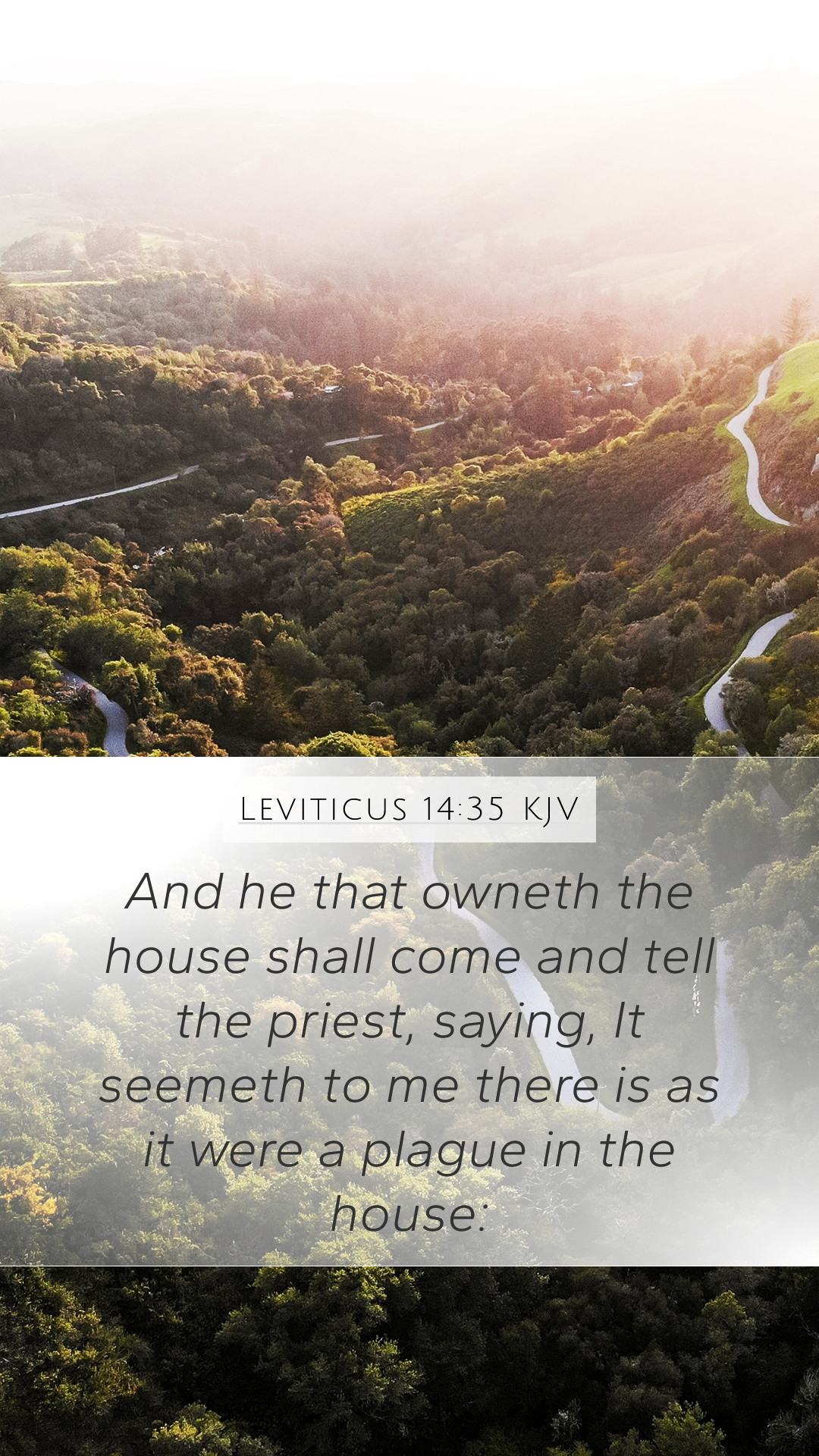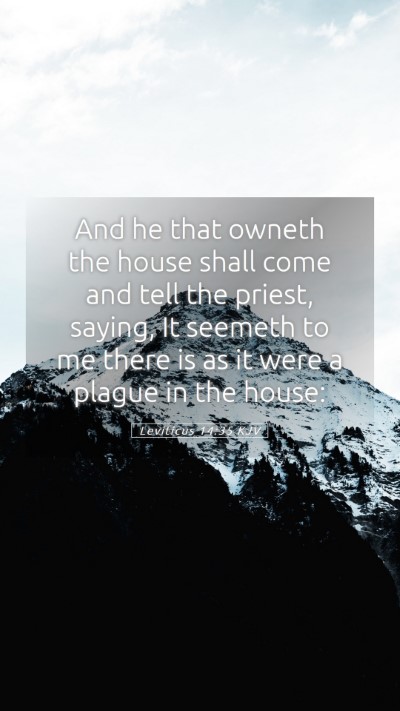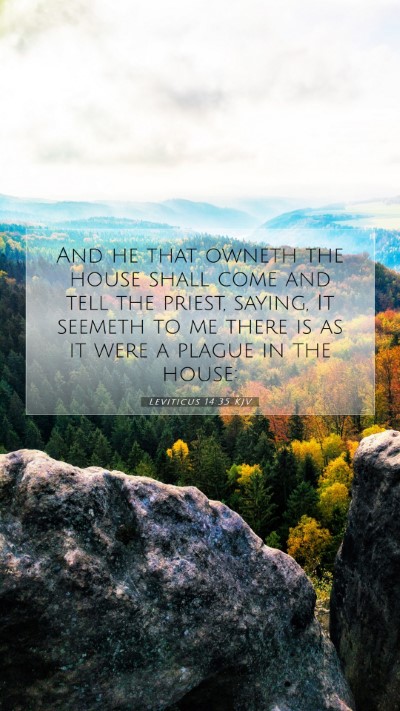Leviticus 14:35 reads, "And he that owneth the house shall come and tell the priest, saying, There is something like a plague in the house."
This verse is part of the broader context in the Mosaic Law, where detailed regulations concerning ceremonial cleanliness, particularly related to skin diseases and mildew, are prescribed.
The focus is primarily on the importance of God's holiness and the necessity of maintaining purity within the community of Israel.
Summary of the Verse Meaning
The verse underscores the protocol that an owner must follow when they suspect their house has been affected by a plague — likely a reference to mildew or other contagious diseases.
The owner must report this to the priest, signaling the community's reliance on religious authorities to assess and address such issues.
Insights from Public Domain Commentaries
-
Matthew Henry’s Commentary:
Henry highlights the necessity of proactive measures in spiritual and social life. The owner’s obligation to report the issue to a priest demonstrates the importance of accountability and community involvement in spiritual matters.
This practice reinforces the understanding that both spiritual and physical health are interlinked in maintaining a covenantal relationship with God.
-
Albert Barnes’ Notes:
Barnes further elaborates on the implications of 'plague' in the house, relating it to a deeper spiritual significance.
He notes that the house, like the people, is to be kept pure and free from anything that might defile it. The priest acts as a mediator, indicating that the community must seek divine guidance in addressing moral and spiritual contamination.
-
Adam Clarke’s Commentary:
Clarke points out that the phrase “something like a plague” suggests the seriousness of the situation. He argues that even innocuous matters must be brought to the attention of proper authorities, promoting a culture of vigilance and diligence in maintaining both physical and spiritual cleanliness.
Understanding the Broader Context
Leviticus 14 is a pivotal chapter in understanding the laws surrounding leprosy and house contamination.
In this chapter, the priest's role is critical. He acts as the one who discerns between clean and unclean, reflecting God's standards for holiness within His people.
Related Biblical Themes
-
Purity and Holiness:
The emphasis on cleanliness points to the larger theme of holiness in the Scriptures — that God's people are to be set apart and free from defilement.
-
The Role of the Priest:
The priest serves as an intermediary between God and the people, which foreshadows the ultimate role of Christ as the High Priest.
-
Community Responsibility:
Every individual in the society had a role in maintaining the purity of the community, reflecting collective responsibility toward God's laws.
Cross References
Several scripture passages can offer additional clarity and context for Leviticus 14:35:
- Leviticus 13:49: Concerning leprosy in garments.
- Numbers 12:10: Miriam's leprosy as an act of defilement.
- Matthew 8:3: Jesus’ cleansing of a leper, showcasing His authority and compassion.
- 1 Peter 2:9: Emphasizing believers as a royal priesthood.
- Revelation 21:27: Discussing the purity required in the New Jerusalem.
Application of the Verse
As we engage in Bible study, the principles found in Leviticus 14:35 challenge both our personal and communal practices regarding spiritual health.
It emphasizes that we should be vigilant in examining the aspects of our lives that may lead to spiritual contamination and seek accountability within our communities.
Conclusion
The careful consideration of Leviticus 14:35 not only provides insights into ancient practices but also evokes critical questions regarding spiritual cleanliness today.
As we explore Bible verse meanings and commentaries, let us strive to apply these teachings to our lives, fostering both individual and corporate holiness.


